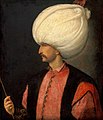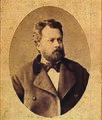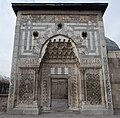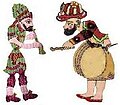Portal:Turkey
Merhaba! Türkiye portalına hoş geldiniz. Hi! Welcome to the Turkey portal.
 | |

| |
Turkey, officially the Republic of Türkiye, is a country mainly located in Anatolia in West Asia, with a smaller part called East Thrace in Southeast Europe. It borders the Black Sea to the north; Georgia, Armenia, Azerbaijan, and Iran to the east; Iraq, Syria, and the Mediterranean Sea to the south; and the Aegean Sea, Greece, and Bulgaria to the west. Turkey is home to over 85 million people; most are ethnic Turks, while ethnic Kurds are the largest ethnic minority. Officially a secular state, Turkey has a Muslim-majority population. Ankara is Turkey's capital and second-largest city, while Istanbul is its largest city and economic and financial center. Other major cities include İzmir, Bursa, and Antalya.
Turkey was first inhabited by modern humans during the Late Paleolithic. Home to important Neolithic sites like Göbekli Tepe and some of the earliest farming areas, present-day Turkey was inhabited by various ancient peoples. The Hattians were assimilated by the Anatolian peoples, such as the Hittites. Classical Anatolia transitioned into cultural Hellenization following the conquests of Alexander the Great; Hellenization continued during the Roman and Byzantine eras. The Seljuk Turks began migrating into Anatolia in the 11th century, starting the Turkification process. The Seljuk Sultanate of Rum ruled Anatolia until the Mongol invasion in 1243, when it disintegrated into Turkish principalities. Beginning in 1299, the Ottomans united the principalities and expanded; Mehmed II conquered Istanbul in 1453. During the reigns of Selim I and Suleiman the Magnificent, the Ottoman Empire became a global power. From 1789 onwards, the empire saw a major transformation, reforms, and centralization while its territory declined.
In the 19th and early 20th centuries, persecution of Muslims during the Ottoman contraction and in the Russian Empire resulted in large-scale loss of life and mass migration into modern-day Turkey from the Balkans, Caucasus, and Crimea. Under the control of the Three Pashas, the Ottoman Empire entered World War I in 1914, during which the Ottoman government committed genocides against its Armenian, Greek, and Assyrian subjects. Following Ottoman defeat, the Turkish War of Independence resulted in the abolition of the sultanate and the signing of the Treaty of Lausanne. The Republic was proclaimed on 29 October 1923, modelled on the reforms initiated by the country's first president, Mustafa Kemal Atatürk. Turkey remained neutral during most of World War II, but was involved in the Korean War. Several military interventions interfered with the transition to a multi-party system.
Turkey is an upper-middle-income and emerging country; its economy is the world's 17th-largest by nominal and 12th-largest by PPP-adjusted GDP. It is a unitary presidential republic. Turkey is a founding member of the OECD, G20, and Organization of Turkic States. With a geopolitically significant location, Turkey is a regional power and an early member of NATO. An EU candidate, Turkey is part of the EU Customs Union, CoE, OIC, and TURKSOY.
Turkey has coastal plains, a high central plateau, and various mountain ranges; its climate is temperate with harsher conditions in the interior. Home to three biodiversity hotspots, Turkey is prone to frequent earthquakes and is highly vulnerable to climate change. Turkey has a universal healthcare system, growing access to education, and increasing levels of innovativeness. It is a leading TV content exporter. With 21 UNESCO World Heritage sites, 30 UNESCO intangible cultural heritage inscriptions, and a rich and diverse cuisine, Turkey is the fifth most visited country in the world. (Full article...)
Selected article -
İzmir is a city on the west coast of Anatolia, and capital of İzmir Province. It is the third most populous city in Turkey, after Istanbul and Ankara, and the largest urban agglomeration on the Aegean Sea.
In 2019, the city of İzmir had a population of 2,965,900, while İzmir Province had a total population of 4,367,251. Its built-up (or metro) area was home to 3,209,179 inhabitants. It extends along the outlying waters of the Gulf of İzmir and inland to the north across the Gediz River Delta; to the east along an alluvial plain created by several small streams; and to slightly more rugged terrain in the south. (Full article...)
General images
Did you know -
- ... that the 1971 Turkish coup d'état was carried out by a memorandum rather than direct intervention by the military? - June 29, 2008 Wikipedia:Recent additions 221
- ... that Vakifli is the only ethnic Armenian village in Turkey? (February 26, 2007) Wikipedia:Recent additions 121
- ... that the McGhee Center for Eastern Mediterranean Studies in Alanya is run by Georgetown University as the only independent study program in Turkey? (November 12, 2007) Wikipedia:Recent additions 185
- ... that during the Russo-Turkish War, 1828-1829 more Russian soldiers died in hospitals from contagious diseases than fighting on the battlefield? (February 1, 2006) Wikipedia:Recent additions 51
- ... that the Church of St. George of Samatya in Istanbul may have been given to the Armenian community because of the intercession of a favorite of Sultan Ibrahim? (October 22, 2011)
- ... that the Mecelle, the Ottoman civil code of 1877, was the first attempt to codify part of the laws of an Islamic state? (January 7, 2007) Wikipedia:Recent additions 115
- ... that the Ancient Greeks credited Broteas, the ugly son of Tantalus, with an ancient rock-cut cliff-face carving of the Great Mother of the Gods in modern Turkey? (March 13, 2006) Wikipedia:Recent additions 57
Selected picture
Selected biography -

Sami Erol Gelenbe (born 22 August 1945, Istanbul), a Turkish and French computer scientist, electronic engineer and applied mathematician, pioneered the field of Computer System and Network Performance. Currently Professor in the Institute of Theoretical and Applied Informatics of the Polish Academy of Sciences (2017- ), he is also a visiting professor at King's College London, Honorary Researcher in the I3S Laboratory (CNRS, University of Côte d'Azur, Nice), and the Abraham de Moivre Laboratory (CNRS, Imperial College). Fellow of several National Academies, he Chairs the Informatics Section of Academia Europaea since 2023. His previous Professorial Chairs include the University of Liège (1974-1979), University Paris-Saclay (1979-1986), University Paris Descartes (1986-2005), NJIT (1991–93), ECE Chair at Duke University (1993-1998), University Chair Professor and Director of EECS, University of Central Florida (1998-2003), and Dennis Gabor Professor and Head of Intelligent Systems and Networks, Imperial College (2003-2019). (Full article...)
Selected video -
Selected quote -
| “ | A satiated man doesn't know what's hunger, a healthy man doesn't know what's disease. | ” |
Recognized content
Provinces
Related portals
Religions in Turkey
Neighbouring countries
Countries with related heritage
WikiProjects
Turkish wikipedia
 |
There is a Turkish version of Wikipedia, the free encyclopedia. |
Wikimedia
The following Wikimedia Foundation sister projects provide more on this subject:
-
Commons
Free media repository -
Wikibooks
Free textbooks and manuals -
Wikidata
Free knowledge base -
Wikinews
Free-content news -
Wikiquote
Collection of quotations -
Wikisource
Free-content library -
Wikiversity
Free learning tools -
Wikivoyage
Free travel guide -
Wiktionary
Dictionary and thesaurus



























































































